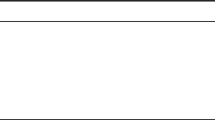Abstract
Public key encryption/decryption with modulus arithmetic is used in a variety of cryptographic applications. A tough computational problem arises due to the very long integer arithmetic needed. Usually serial-parallel multiplication is employed, which slows down speed to the order of k=log 2(n), where n is the modulus. This paper describes a possible implementation of a method using parallel multiplication schemes at the order of log(k) in combination with incomplete modulus reduction. As many partial products as possible are implemented in parallel (As Parallel As Possible, APAP). This leads to a mixture of linear and logarithmic time complexity. This paper describes a hardware solution for the APAP-multiplier with optimized dynamic adder cells without storage elements. Additional available silicon area can be traded against speedup in a smooth way. The underlying method is described and proved in [Posch90]. Using 664 bit long operands, a 40mm2 chip manufactured in 1.2 micron CMOS technology can reach an RSA encryption/decryption rate of 240 kbits/second.
Preview
Unable to display preview. Download preview PDF.
Similar content being viewed by others
References
Orton G.A. et.al.: VLSI implementation of public-key encryption algorithms; Proceedings on Advances in Cryptology — CRYPTO '86, Springer-Verlag, (Berlin, 1987), pp 277–301.
Posch K.C., Posch R.: Approaching encryption at ISDN speed using partial parallel modulus multiplication; Microprocessing and Microprogramming 29 (1990) 177–184.
Postl H.: Fast Evaluation of Dickson Polynomials; Contributions to General Algebra 6, B.G. Teubner-Verlag, (1988).
Rivest R., A. Shamir, L. Adlemann: A Method for Obtaining Digital Signatures and Public-Key Cryptosystems; Comm. of the ACM (Feb.1978), pp 120–126.
Rivest R. L.: RSA Chips (Past/Present/Future); Proceedings of Advances in Cryptology, EUROCRYPT '84, Springer-Verlag, (Berlin, 1985), pp. 159–165.
Takagi N. et al.: High-Speed VLSI Multiplication Algorithm with a Redundant Binary Addition Tree; IEEE Transactions on Computers, Vol C-34, No. 9, 1985.
Wallace C. S.: A suggestion for a fast multiplier; IEEE Transactions on Electronic Computers, Vol. EC-13, Feb. 1964, pp. 14–17.
Author information
Authors and Affiliations
Editor information
Rights and permissions
Copyright information
© 1992 Springer-Verlag Berlin Heidelberg
About this paper
Cite this paper
Lippitsch, P., Posch, K.C., Posch, R. (1992). Multiplication as parallel as possible. In: Zima, H.P. (eds) Parallel Computation. ACPC 1991. Lecture Notes in Computer Science, vol 591. Springer, Berlin, Heidelberg. https://doi.org/10.1007/3-540-55437-8_91
Download citation
DOI: https://doi.org/10.1007/3-540-55437-8_91
Published:
Publisher Name: Springer, Berlin, Heidelberg
Print ISBN: 978-3-540-55437-0
Online ISBN: 978-3-540-47073-1
eBook Packages: Springer Book Archive




